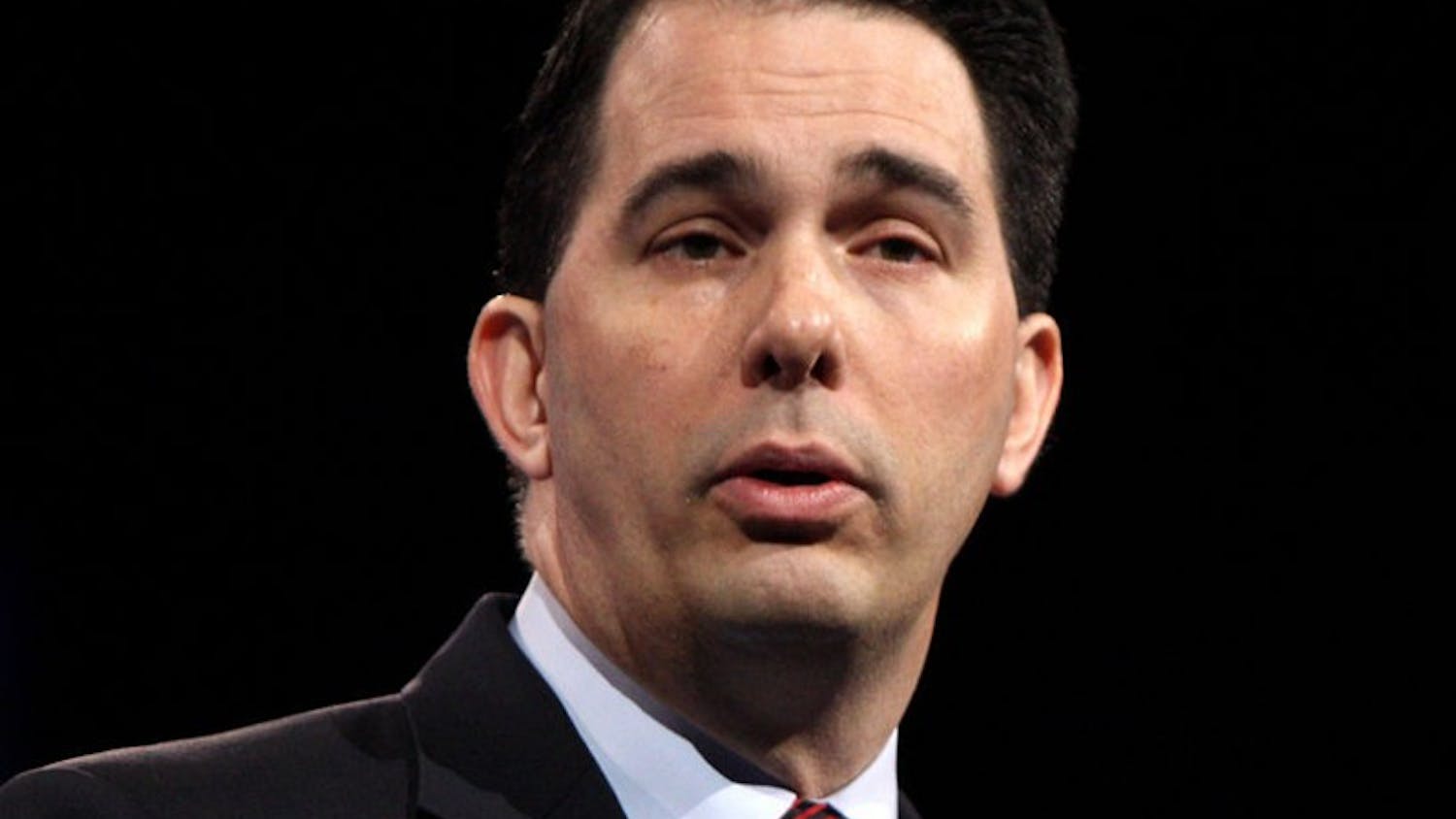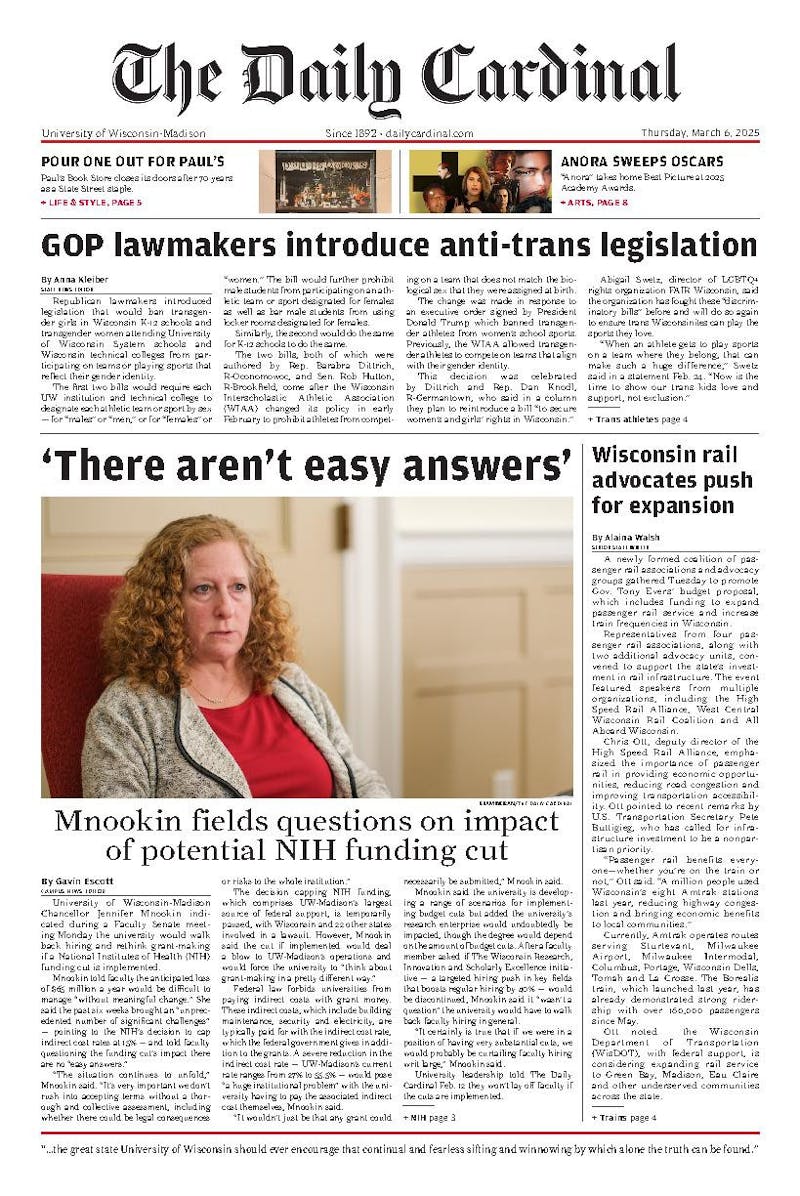I happened to be walking by Witte Hall the other day and witnessed a timeless staple of freshman dorm life in the early fall: the get-to-know-you game of volleyball.
For the more outgoing and self-confident incoming freshmen, a casual game of volleyball is nothing more than a worthy excuse to get some sun and physical activity and make new connections. For the more socially awkward, like myself, it was an excruciatingly uncomfortable exercise that followed a predictable template: tell people your name, exchange the obligatory “nice to meet you” and showcase some token enthusiasm when your team scored a point. These things aren’t terribly difficult to do, but the superficiality of the whole affair is quite cringe-worthy.
So, just like many of the other freshmen, I played along. Hell, I needed to play along. After all, I had convinced myself that these were “my people,” and that something like a casual game of volleyball was commensurate with the college experience. At least that’s what all those college brochures made it seem like anyway.
You see, I had been preparing to leave for college since I was in middle school. I grew up in the rural village of Richfield, Wis., a fine place in its own right. However, it is one whose values I believed were strongly at odds with my own. Richfield largely held true to just about all the familiar stereotypes of people from small-town Wisconsin you’ve probably already heard—a bunch of church-going, country music-loving, beer-swilling, deer-hunting, fish fry-eating lard-asses.
More than a few kids from my high school had Confederate flag decals on the rear windows of (what else?) their pickup trucks. It came as little surprise when I found out that Washington County, where Richfield is located, checked in at no. 74 in The Daily Caller’s 2010 rankings of the most conservative-friendly counties in America.
Don’t get me wrong, I created some great friendships during my upbringing, and I maintain many of those connections to this day. As the years passed, I just grew continuously weary of my surroundings, and dreamt of a place where I could be among more people with similar worldviews and outlooks as me. I spent many a Friday and Saturday evening playing basketball at a local park by myself, imagining what it would be like to get a fresh start elsewhere.
When it became too dark to play, I would retreat to my car, listening to artists like Bruce Springsteen, The Who, and Roy Orbison, whose lyrical themes often evoked the exact sentiments I was feeling: an underlying jadedness toward the status quo but an optimistic outlook for the future. Upon leaving Richfield I embarked for Madison to begin my freshman year that fall, Springsteen’s “Thunder Road” perfectly encapsulated my feelings at the time in the song’s final line: “It’s a town full of losers, I’m pulling out of here to win.”
As a result of this nascent dreaming, I became fully convinced that UW-Madison would be the orgy of awesomeness that I had desperately longed for. I envisioned debating my peers about the finer points of Sartre existentialism, the subtleties of art deco and art nouveau and other high-brow shit like that. I believed that all of my professors would give these gripping, epic lectures, calling on students randomly to test their insight and resolve. I thought everyone got laid with regularity. In a sense, I thought college would be the pinnacle of my existence.
Of course, I soon learned that my perception of college was quite warped. While freshman year was surely a whirlwind and up to that point, the greatest year of my life, I didn’t get nearly the level of fulfillment that I had expected going in. I had put the college experience on such a lofty pedestal that it simply couldn’t meet my expectations.
The lesson I’ve learned is to never let my perceptions of a particular environment dictate the breadth of my experiences. Growing up in Richfield, I placed so much emphasis on what I didn’t like about my surrounding environment that I took for granted the aspects of the area that I did enjoy.
Rather than embracing the individuals and places that I did appreciate, I retreated to my own inner sanctum, thinking that because almost everybody and nearly everything else didn’t meet my expectations, it meant that nobody and nothing else justifiably could. The same thing happened to me freshman year. I had a concept in my head of what college should be like, and when that schema wasn’t met, I became disappointed rather than moving on and discovering what I liked about the college experience.
Just as I did, I’m sure many of you incoming freshmen out there have visions of grandeur and come to Madison thinking, “HERE I AM, THE WORLD IS MY OYSTER!” And it’s true that some of you may have the stimulating conversations about high-brow shit like you always wanted. Some of you may have engaging professors who challenge you and maintain your undivided attention throughout the power lecture. Some of you may even get laid.
So welcome to Madison, freshmen. Your next four (or five) years of college will most likely be unique to any other period of your life at this point.
Just realize that even if your expectations of college aren’t met—or even if they are—there are still plenty of great people, places and things that you might still be overlooking.
Want to reminisce about your Freshman experience with Adam? Tell him your get-to-know-you game of volleyball was, like, totally rad at ajwolf2@wisc.edu.





